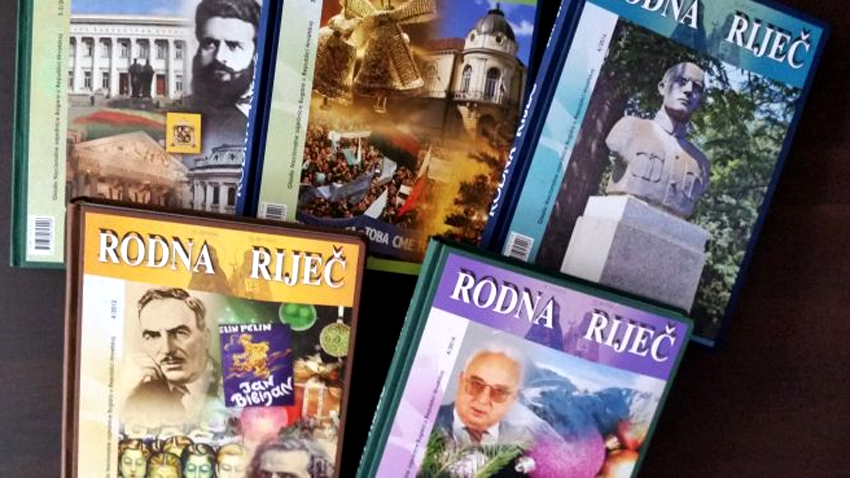As a popular Bulgarian joke goes, you are bound to bump into a fellow Bulgarian wherever you may go around the globe and it applies with full force also when it comes to Croatia. The country, which is the newest (until now) 28th member of the European Union (since July 1, 2013), is close to us not only because of our common European family and its attractive tourism, but also as a place with a respected and officially recognized Bulgarian minority.
In 1998, the National Organization of Bulgarians in Croatia was established in Zagreb. Four years later (in 2002), they were granted the status of a national minority, and since 2003 a special subsidy has started to be allocated from the Croatian budget. For the needs of the community, the Zagreb City Council has also provided a venue at 13 Knyaz Mislav Str, where the Bulgarian community can carry out various initiatives aimed at preserving the Bulgarian identity, language and culture. There is also a bilingual journal entitled Rodna rech (Native Speech) published in Zagreb and financially supported by the Croatian Ministry of Culture. Its editor-in-chief is Bulgarian writer and journalist Diana Glasnova. Born in Sofia in 1954, Diana has worked as a journalist at the Bulgarian Telegraph Agency and in the Democracy newspaper and in 1996 moved to Zagreb, living there ever since:
"The Bulgarian community in Croatia goes back a long way," Diana says in an interview for Radio Bulgaria. "There are young people who come to Croatia to work, but they do not stay here for long. Often these are representatives of institutions such as the World Bank or the European Parliament, and they remain in Zagreb until their term in office ends. The main diaspora here is composed of heirs to Bulgarian gardeners and the families of musicians who, in the 1970s, after participating in the popular Summer Music Evenings in Dubrovnik, decided not to return to Bulgaria. Some of them went into fake marriages, others signed long-term contracts with the theatre or other Croatian cultural institutes. There are few people who have remained from the immigrants and young people who come here nowadays have little interest in the community. You know, young people today work 12-16 hours a day, depending on the sector, and after work they are tired - you can hardly get them to visit a Bulgarian exhibition or something. That is why we publish the Rodna Rech journal.”

The settlement of Bulgarians on the territory of Croatia took place in several stages and in different historical periods. Evidence for Bulgarian settlements dates back to the Middle Ages, and after the Chiprovtsi Uprising (1688) Bulgarian Catholics settled in the Slavonia region (present-day Croatia). The Pejačević family received an estate in the region of the town of Osijek, and the champion for Bulgarian freedom Georgi Pejačević – a baron’s title. In the middle of the 19th century, many Bulgarians studied at the University of Zagreb with a scholarship awarded by a great friend of Bulgaria, Bishop Joseph Strossmayer. The second big Bulgarian wave to Zagreb dates from the beginning of the 20th century. These were gardeners who became famous on the Zagreb marketplace with vegetables unknown until then. Bulgarian farmers impressed the Zagreb residents so much that for years they would call "Bulgarian" anyone who was involved in vegetable production.
In recent years, the number of Bulgarians in Croatia has increased. Young people from Bulgaria go there to study or work. There is nothing accidental also in the purpose of the Bulgarian bilingual magazine Rodna Rech published in Zagreb, says its editor-in-chief Diana Glasnova:
"We want to explain to the Croats who we are and what Bulgaria is. Otherwise how should we expect respect for a minority if it is little-known? That is why we write in both Bulgarian and Croatian, which makes us unique. No other minority in Croatia has bilingual editions because of the resources they need for translation. But we felt that it should be done in this way. Now, as a matter of fact, our journal is read by the Croatian president and cabinet ministers. In addition, for the fourth year now, the Bulgarian magazine has been purchased by the Library of Congress in Washington. It is fully funded by the Croatian state. And this is the case for all national minorities in Croatia, for which we are grateful."
English version Rossitsa Petcova
Topics related to renewable resources and natural disasters united students from the Bulgarian Sunday School "Assen and Iliya Peykovi" in Rome, the First English Language School in Sofia and the Greve High School near Copenhagen. The project aims to..
More than 50 wine producers from Bulgaria and Greece are going to take part in the contest for best wine with which the two-fay wine festival will kick off in Delchevo village near Gotse Delchev. Expert oenologists will evaluate a total of 134..
The day of St. Tryphon is marked on 1 February old style (14 February new style), and i n the folklore calendar it spans 3 days, known as Trifontsi – 1,2 and 3 February. Known in popular tradition as Trifon Zarezan (Trifon the pruner), it is a..
21 February is International Mother Language Day, first proclaimed as such by UNESCO and later adopted by the UN General Assembly. The right to..
"The place in France where we draw together the future of our children in Bulgarian" - this is how Yaneta Dimitrova described her workplace - the..
"Thracians, Wine and Culture" is the theme of a seminar at the archaeological complex "Valley of the Thracian Kings" near Kazanlak , which brings..

+359 2 9336 661
